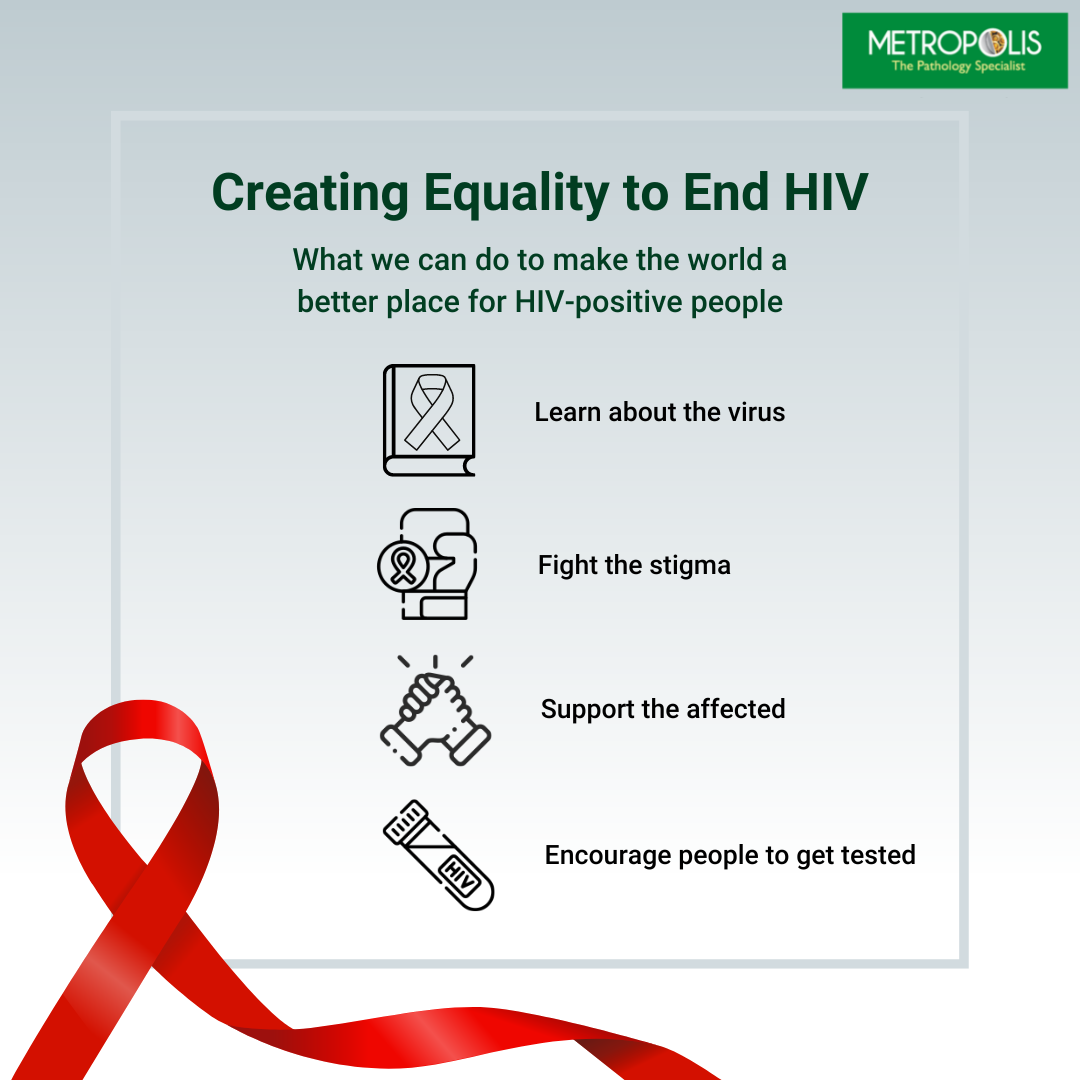Preventive Healthcare
AIDS: Symptoms, Causes, Treatment and Prevention
17606 Views
0

AIDS, which stands for Acquired Immuno-deficiency Syndrome, is a life-threatening, chronic condition caused by HIV. This virus attacks the immune system and interferes with the body’s ability to fight diseases and infections.
It is primarily a sexually transmitted disease but can be spread due to contact with infected blood and sharing needles for illicit drug use. It can also be transmitted to a child from the mother during pregnancy, breastfeeding, and childbirth. Though AIDS does not have a complete cure, the infection can be controlled using medications.
What are The Symptoms of AIDS?
Many people go years without experiencing any symptoms, even after being infected by HIV. Therefore, it is essential to get yourself tested even if you don’t notice any symptoms. Symptoms of AIDS appear similar to flu and include:
- Fever
- Fatigue
- Chills
- Muscle aches
- Sore throat
- Rashes
- Night sweats
- Mouth sores
- Swollen lymph nodes
What are The Causes of AIDS?
AIDS is a condition that occurs due to an infection of HIV. HIV is a variation of the SIV virus transmitted to humans from African chimpanzees. The virus mutated once it entered the human body and is now known as HIV. HIV spreads from one person to the other through:
- Sexual contact
- Illicit use of injection drugs
- Sharing needles
- Contact with infected blood
- From mother to child at the time of pregnancy, breastfeeding, and childbirth.
What are The Treatment Options for AIDS?
AIDS is usually treated with the help of a combination of medications known as ART (Antiretroviral Therapy). This combination of pills is more effective than a single pill in preventing the multiplication of HIV and preventing it from destroying the cells in your body. Several combination pills are also available that contain several medicines in the form of a single pill. Your doctor will study your case and suggest the best combination for your needs.
ART aims to minimize the viral load in the blood to an undetectable level, which will not show up on an HIV test. It also aims to slow down the weakening of the immune system due to HIV.
Medications for The Treatment of HIV
Different types of pills are used in Antiretroviral Therapy. Each of these pills has a different way of preventing HIV from multiplying and infecting your cells. The most common types of ART medication used for treating AIDS include:
- Protease inhibitors (PIs)
- Nucleoside reverse transcriptase inhibitors (NRTIs)
- CCR5 antagonists
- Non-nucleoside reverse transcriptase inhibitors (NNRTIs)
- Fusion inhibitors
- Attachment inhibitors
- Integrase strand transfer inhibitors (INSTIs)
- Pharmacokinetic enhancers
- Post-attachment inhibitors
How to Take Care of Yourself When Living with AIDS?
When living with AIDS, taking your prescribed medications regularly and on time is crucial. Make sure you don’t miss out on any doctors’ appointments. If you end up taking any medication by accident, HIV can change the way it mutates and affects your cells. As a result, your medications can stop working properly. Discuss it with your healthcare provider if your schedule hinders your ability to take your medications regularly and on time.
How to Reduce Your Risk of Getting AIDS?
So, to reduce your risk of getting infected with HIV, the most important thing is to be aware of how the disease spreads. Always protect yourself while carrying out certain activities. Some of the best ways to prevent the spread of infection and minimize your risk of getting infected with HIV include:
- Always use latex condoms while having sex, including vaginal, oral, and anal sex.
- Use water-based lubricants.
- Avoid the use of condoms made using animal products such as lambskin.
- Never share needles with another person for drug use or any other reason.
- Get tested for STDs regularly. Other STDs can also put you at a higher risk of getting infected with HIV.
- Avoid getting high on drugs, as intoxicated people are less likely to protect themselves.
- If you are at a higher risk of HIV exposure, talk to your healthcare provider and discuss if you should take pre-exposure prophylaxis.
If you feel like you have been exposed to HIV, get in touch with your healthcare provider immediately and discuss if you should be taking post-exposure prophylaxis.
Can you Prevent AIDS with Medications?
These days medications are available that can prevent AIDS in people who are at a higher risk of exposure or have been exposed to HIV. These medications include PrEP (Pre-exposure prophylaxis) and PEP (Post-exposure prophylaxis).
- Pre-exposure prophylaxis (PrEP): These pills are prescribed to patients at a higher risk of getting exposed to HIV. Your healthcare provider will recommend you take one pill every day when you don’t have HIV, have had a sexual partner with HIV, had sexual contact without a condom, or have been diagnosed with any STD in the past six months. PrEP may also be recommended if you don’t have HIV but have injected drugs with a person with HIV or have shared equipment or needles to inject drugs. However, remember that PeEP should not be used to replace other preventative measures. Always use condoms during sexual contact, and never share needles to inject any drugs.
- Post-exposure prophylaxis (PEP): PEP medications are prescribed to try and prevent HIV injection soon after exposure. This medication is prescribed to people who don’t know if they have HIV but have been recently exposed to it through sexual assault, consensual sex, or shared needles. PEP medication must be taken within 72 hours of the exposure and continuously for a minimum of 28 days. It is an emergency-use drug and should not be used to replace any other precautionary measures, such as condom use.
Conclusion
AIDS is caused due to a viral infection that reduces the efficiency of your immune system. With the current advancement in treatment, people taking antiretroviral medicines can lead a healthy and long life with HIV. If someone with HIV fails to receive treatment or is unaware of their HIV exposure, the disease can progress to AIDS or stage 3 HIV. A person with AIDS is more prone to infections and other health issues. If you suspect recent HIV exposure, get in touch with your healthcare provider and get yourself tested.























 WhatsApp
WhatsApp
